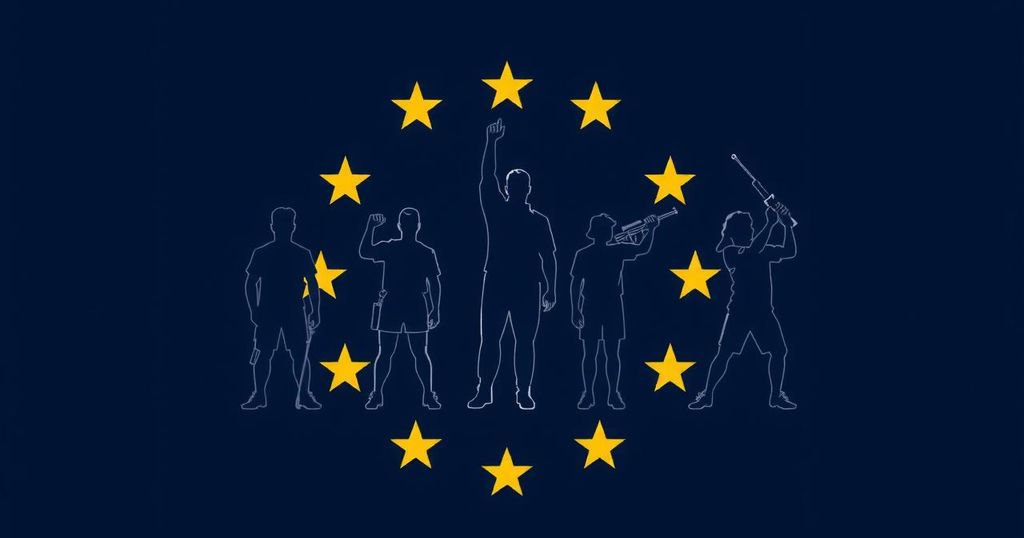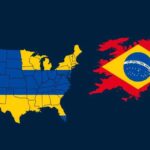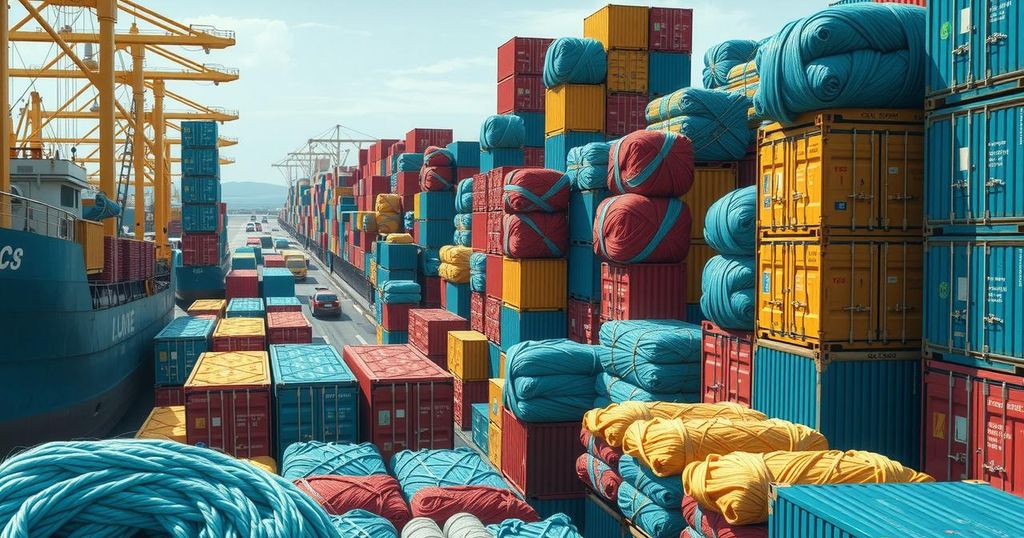Historic Recognition of Venezuelan Leader by EU: An Interview with Maria Corina Machado
Summary
The European Parliament has declared Edmundo González Urrutia as the legitimate winner of the Venezuelan elections, a decision praised by opposition leader Maria Corina Machado during a recent interview, where she emphasized the ongoing repression under Nicolás Maduro’s regime and the critical need for international support for Venezuela’s democratic movements.
In an exclusive interview, Venezuelan opposition leader Maria Corina Machado expressed that the European Parliament’s recent decision, which recognizes Edmundo González Urrutia as the genuine winner of Venezuela’s presidential election, is a historic milestone that signifies Europe’s support for the Venezuelan people amid increasing repression from Nicolás Maduro’s regime. Machado stresses that since the election on July 28, where González was declared the rightful president, Maduro has unleashed unprecedented levels of persecution against opposition leaders, forcing many into hiding or exile. She argues that the narrative of a polarized Venezuela, shaped by past leaders like Hugo Chávez and Maduro, has been dismantled by recent electoral results, which reveal a waning social base for the current regime. The interview elaborated on the shift in the Venezuelan Armed Forces, as they have undergone infiltration by Cuban agents that have altered their original defensive posture, aligning them against their fellow citizens. Additionally, Machado articulated the harsh realities faced by the Venezuelan populace, with reports of severe shortages in essential resources and a horrific outflow of people leaving the country, thus rendering Venezuela the site of the world’s largest migratory crisis, surpassing those of Ukraine and Syria. She posited that the country’s economic survival has gravitated toward illegal activities such as drug trafficking and human trafficking, due to the catastrophic state of the economy worsened by corruption and mismanagement. Machado highlighted the historical potential of Venezuela to become an energy hub but lamented its current status as a marginal player in the global market. The European Parliament’s recent vote, although controversial, serves as validation legitimizing González’s leadership role in Venezuela. Machado conveyed gratitude for this acknowledgment, asserting it is imperative for democratic allies in Europe to continue applying pressure on Maduro’s regime to facilitate a peaceful resolution and support the Venezuelan people’s struggle for freedom. Furthermore, she underlined the importance of Europe’s active role in promoting policies against human rights violations and financial systems enabling corruption, suggesting a multifaceted approach to addressing Venezuela’s ongoing crisis. Surrounding the topic of oil and its management, Machado noted the oil sector under a new democratic governance would be leveraged to foster national prosperity grounded in justice and freedom rather than oppression.
The situation in Venezuela has escalated due to increased repression from Nicolás Maduro’s regime following the presidential elections, which were marred by allegations of electoral fraud. Venezuelan society faces acute challenges, including economic disarray and rampant human rights violations, resulting in extensive emigration. Opposition figures like Maria Corina Machado criticize the regime’s alliances with countries like Russia, Iran, and Cuba, while calling for international recognition of their democratic leadership.
In conclusion, the European Parliament’s acknowledgment of Edmundo González Urrutia reflects a significant shift in international support for Venezuela’s democratic movements. Maria Corina Machado’s insights reveal the oppressive reality faced by Venezuelans and the critical need for international advocacy and intervention. Strengthening Europe’s commitment to human rights and democratization in Venezuela is paramount to facilitating a resolution that upholds the dignity and future of the Venezuelan people.
Original Source: www.euronews.com








Post Comment